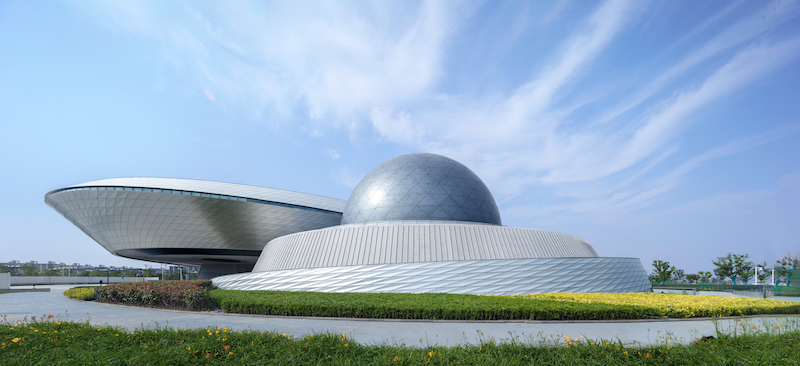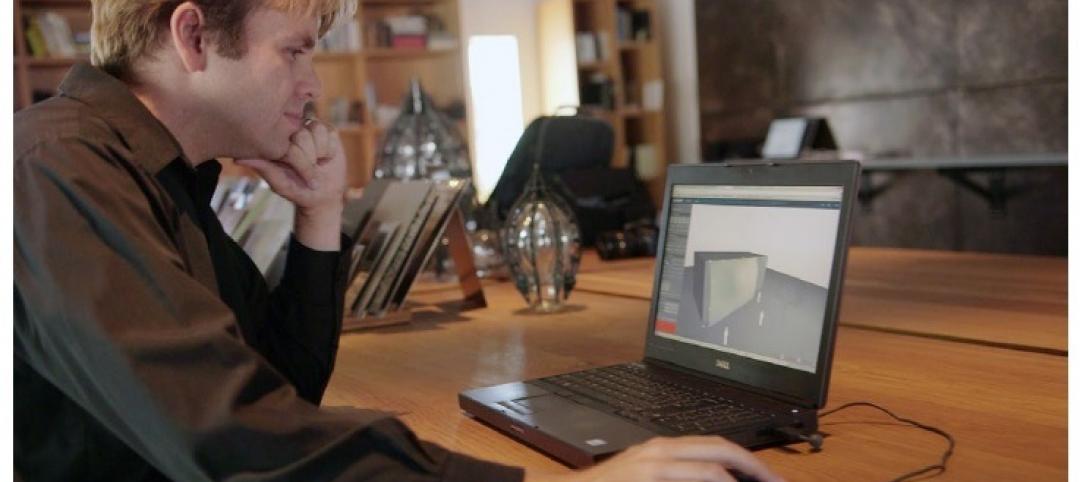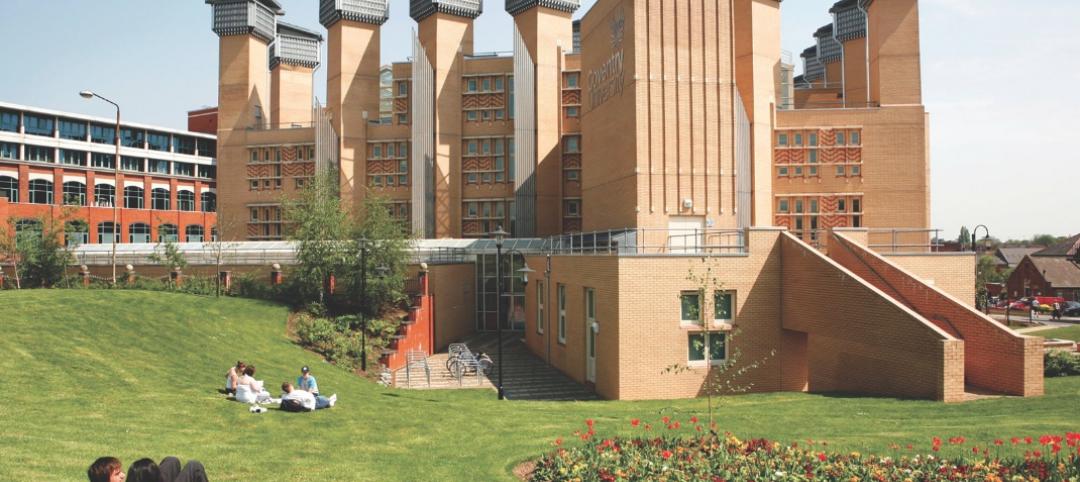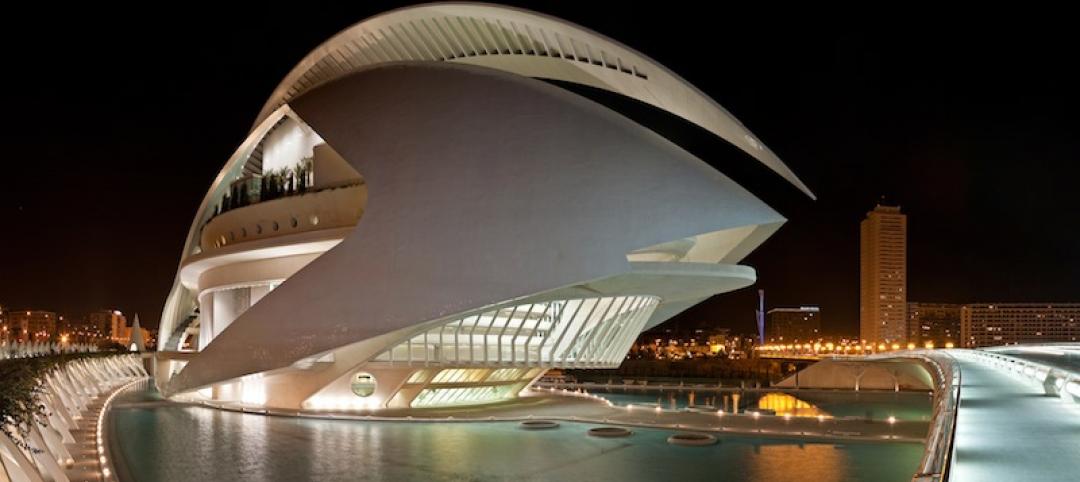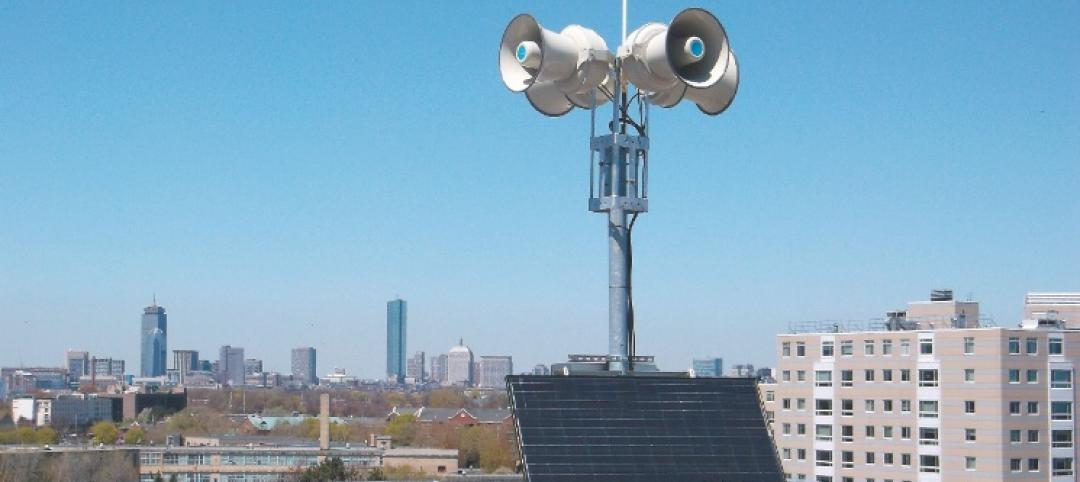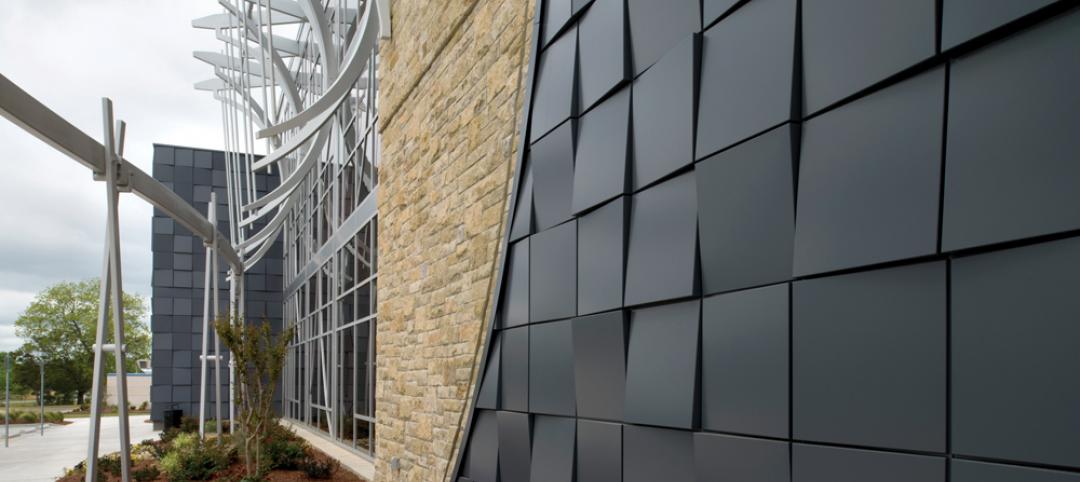The recently completed 420,000-sf Shanghai Astronomy Museum is set to open on July 18. The new astronomical branch of the Shanghai Science and Technology Museum is the largest museum in the world solely dedicated to the study of astronomy.
The building does not include any straight lines or right angles as a nod to the geometry of the universe and the dynamic energy of celestial movement. Design inspiration was drawn from the “three-body problem” in physics, which looks to the intricate choreographies created by gravitational attraction of multiple bodies within solar systems.
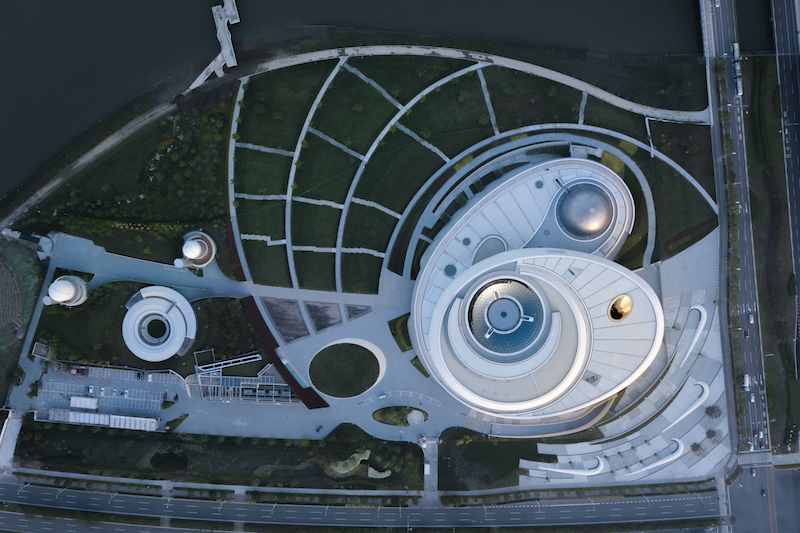
The building’s envelope traces a series of arcing paths that are influenced by gravitational pull: the heart of the central atrium, the forward momentum at the entry, and the planet-like sphere that envelopes the planetarium theater. Additionally, the museum’s three principal architectural components, the Oculus, the Inverted Dome, and the Sphere, act as functioning astronomical instruments that track the sun, moon, and stars.
The Oculus is suspended over the museum’s main entry and demonstrates the passage of time by tracking a circle of sunlight on the ground across the entry plaza and reflecting pool. The Sphere houses the planetarium theater, which is half submerged in the building. The Sphere derives its shape from the programmatic element it contains, but also from an abstract manifestation of a primary celestial form. With minimal visible support, the Sphere evokes an illusion of weightlessness and anti-gravity. The Inverted Dome is a large, inverted glass tension structure that sits on top of the central atrium at the roof line. Visitors will have the ability to occupy the center of the glass dish with an unimpeded view of the sky. The Inverted Dome acts as the culmination of the exhibit journey. A 720-degree spiraling ramp inside the museum and underneath the Inverted Dome traces the orbital flow of the visitor sequence throughout the museum exhibits and draws the eye upward to its apex.
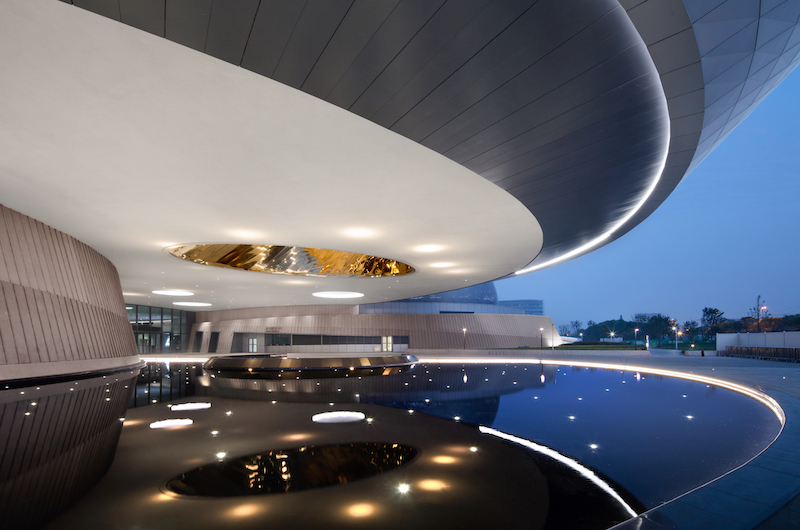
The museum grounds include buildings and programming such as temporary and permanent exhibits, a 78-foot solar telescope, an observatory, an optical Planetarium, an Education and Research Center, and a Digital Sky Theater. Programming at the museum will feature immersive environments, artifacts and instruments of space exploration, and educational exhibits.
A ceremony to celebrate the museum’s opening will be held on July 17.
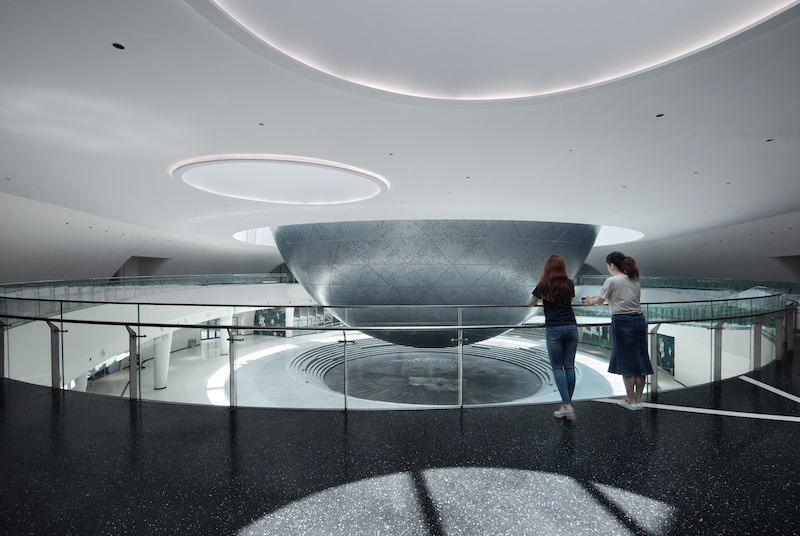
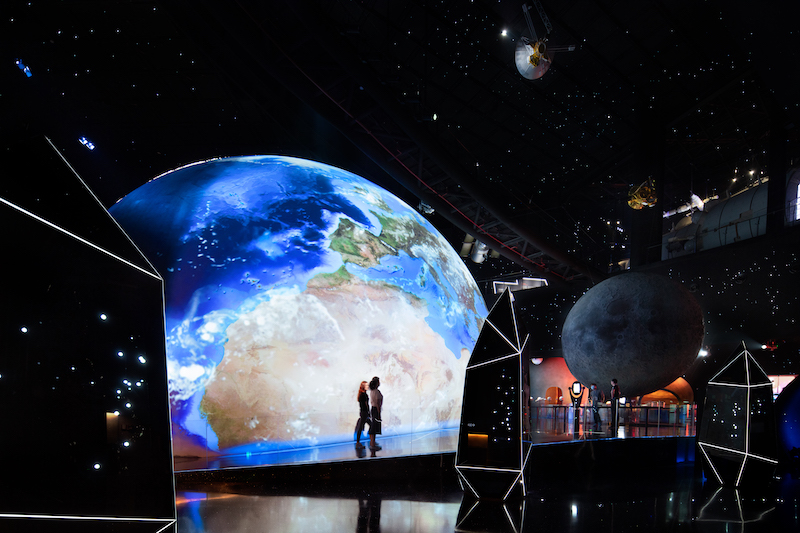
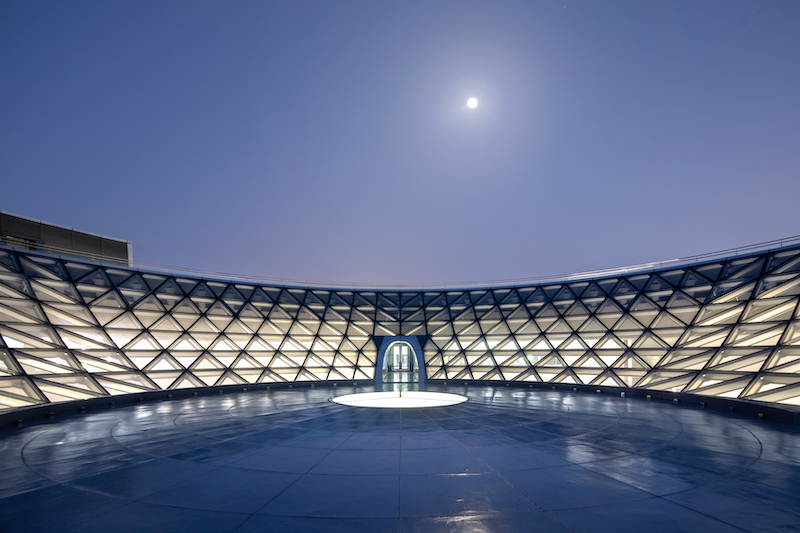
Related Stories
| Jan 28, 2014
Big Ten Conference opens swanky HQ and museum [slideshow]
The new mixed-use headquarters includes a museum, broadcast studios, conference facilities, office spaces, and, oh yeah, a Brazilian steakhouse.
| Jan 13, 2014
Custom exterior fabricator A. Zahner unveils free façade design software for architects
The web-based tool uses the company's factory floor like "a massive rapid prototype machine,” allowing designers to manipulate designs on the fly based on cost and other factors, according to CEO/President Bill Zahner.
| Jan 11, 2014
Getting to net-zero energy with brick masonry construction [AIA course]
When targeting net-zero energy performance, AEC professionals are advised to tackle energy demand first. This AIA course covers brick masonry's role in reducing energy consumption in buildings.
| Dec 30, 2013
Calatrava facing legal action from his home town over crumbling cultural complex
Officials with the city of Valencia, Spain, are blaming Santiago Calatrava for the rapid deterioration of buildings within its City of Arts and Sciences complex.
| Dec 19, 2013
Mastering the art of crowd control and visitor flow in interpretive facilities
To say that visitor facility planning and design is challenging is an understatement. There are many factors that determine the success of a facility. Unfortunately, visitor flow, the way people move and how the facility accommodates those movements, isn’t always specifically considered.
| Dec 13, 2013
Safe and sound: 10 solutions for fire and life safety
From a dual fire-CO detector to an aspiration-sensing fire alarm, BD+C editors present a roundup of new fire and life safety products and technologies.
| Dec 10, 2013
16 great solutions for architects, engineers, and contractors
From a crowd-funded smart shovel to a why-didn’t-someone-do-this-sooner scheme for managing traffic in public restrooms, these ideas are noteworthy for creative problem-solving. Here are some of the most intriguing innovations the BD+C community has brought to our attention this year.
| Nov 27, 2013
BIG's 'oil and vinegar' design wins competition for the Museum of the Human Body [slideshow]
The winning submission by Bjarke Ingels Group (BIG) and A+ Architecture mixes urban pavement and parkland in a flowing, organic plan, like oil and vinegar, explains Bjarke Ingels.
| Nov 27, 2013
Wonder walls: 13 choices for the building envelope
BD+C editors present a roundup of the latest technologies and applications in exterior wall systems, from a tapered metal wall installation in Oklahoma to a textured precast concrete solution in North Carolina.
| Nov 26, 2013
Construction costs rise for 22nd straight month in November
Construction costs in North America rose for the 22nd consecutive month in November as labor costs continued to increase, amid growing industry concern over the tight availability of skilled workers.


